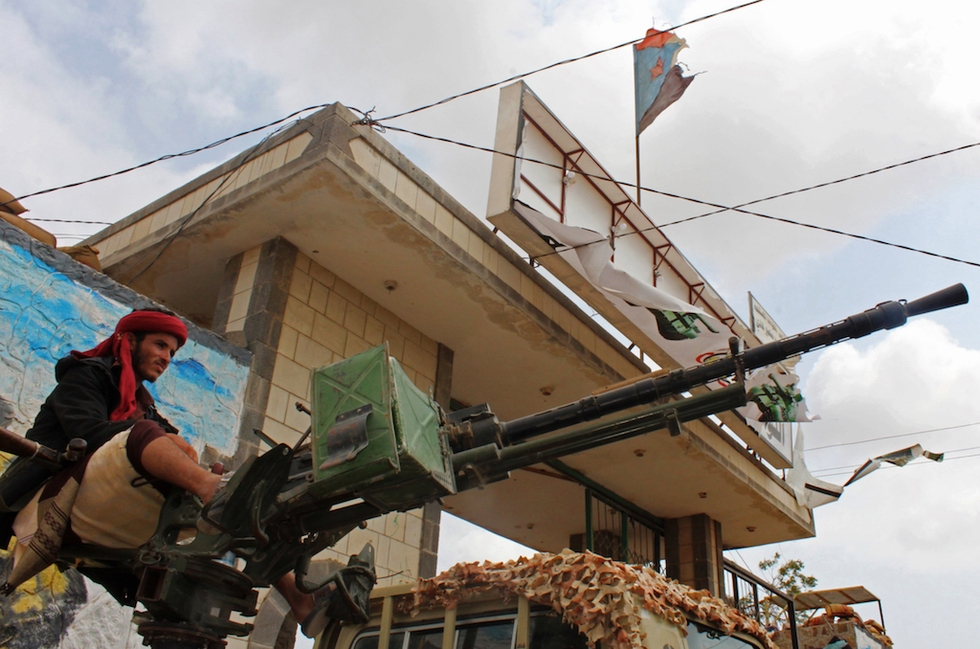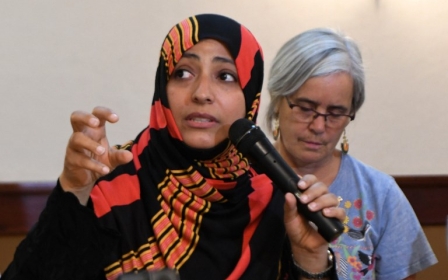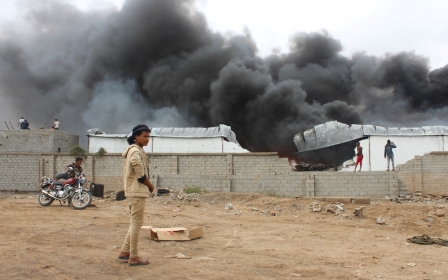Yemeni separatist leader visits UAE following clashes in Aden: Report

The leader of South Yemen's separatist movement is visiting the UAE and Saudi Arabia as different actors attempt to quell unrest in the southern city of Aden.
According to sources speaking to the Arabic-language Al-Araby al-Jadeed, Aidarus al-Zoubaidi - leader of the Southern Transitional Council (STC) - left Aden to travel to Abu Dhabi following days of bloodshed after forces linked to the STC seized control of the city.
Saudi and Emirati envoys shuttled between Yemeni government forces and STC forces last week in a bid to end the stand off.
Saudi Arabia and the United Arab Emirates are the two major contributors to a military coalition that has backed President Abd Rabbuh Mansour Hadi since he fled into exile in 2015.
But they have struggled to keep together the disparate alliance supporting him against Houthi Shia rebels who control the capital Sanaa and much of the north.
The UAE has also been responsible for training STC forces who initially supported Hadi against the Houthis, but who have now reiterated their demands for independence.
The STC's mission statement, released in January, calls for the "complete liberation of all territories of South Arabia from the occupying and invading forces" (of the north) and the establishment of a "civilian state of the South".
South Yemen was an independent country until union with the north in 1990.
Sources close to the separatists and in Washington say the coalition may be growing frustrated with Hadi, who has been unable to gain the upper hand in the south.
"It might be too big a statement to say this is the end of the Hadi government...but I think it's fair to say it is the end of one Yemen," said Farea al-Muslimi, Yemen researcher at the London-based think tank Chatham House.
"It's not necessarily the start of a South Yemen, but it is the end...of the uncomfortable political honeymoons of the Yemen war."
Among those honeymoons, according to analysts, is that of the UAE and Saudi Arabia around Hadi in particular.
Historically, the UAE has more military experience than Saudi Arabia, having sent troops to Kosovo in the 1990s and dealing more closely with the Yemeni army on the ground today.
"The Saudi-Emirati coalition has been pushing a narrative which is at odds with reality," said Simon Henderson, director of Gulf research at The Washington Institute.
"The reality seems to be that the UAE has become exasperated with Hadi and is orchestrating its own plans for the south."
The collapse of the southern coalition - which comes less than two months after ex-president Ali Abdullah Saleh was killed in a fight with his former allies the Houthis - ends the ties that have dominated Yemen throughout its civil war.
New MEE newsletter: Jerusalem Dispatch
Sign up to get the latest insights and analysis on Israel-Palestine, alongside Turkey Unpacked and other MEE newsletters
Middle East Eye delivers independent and unrivalled coverage and analysis of the Middle East, North Africa and beyond. To learn more about republishing this content and the associated fees, please fill out this form. More about MEE can be found here.




